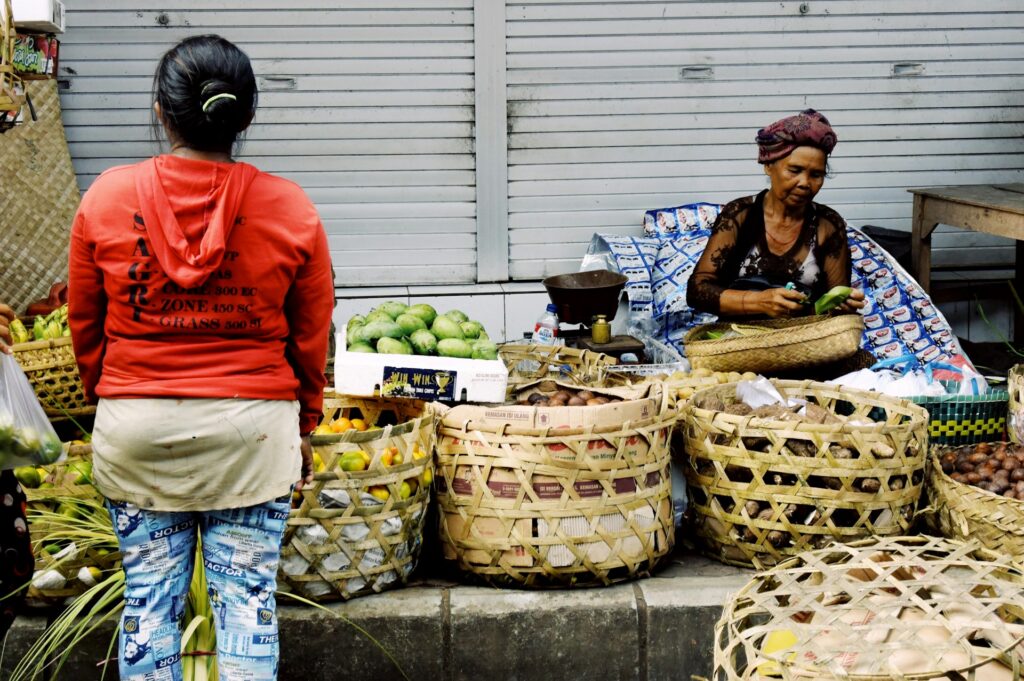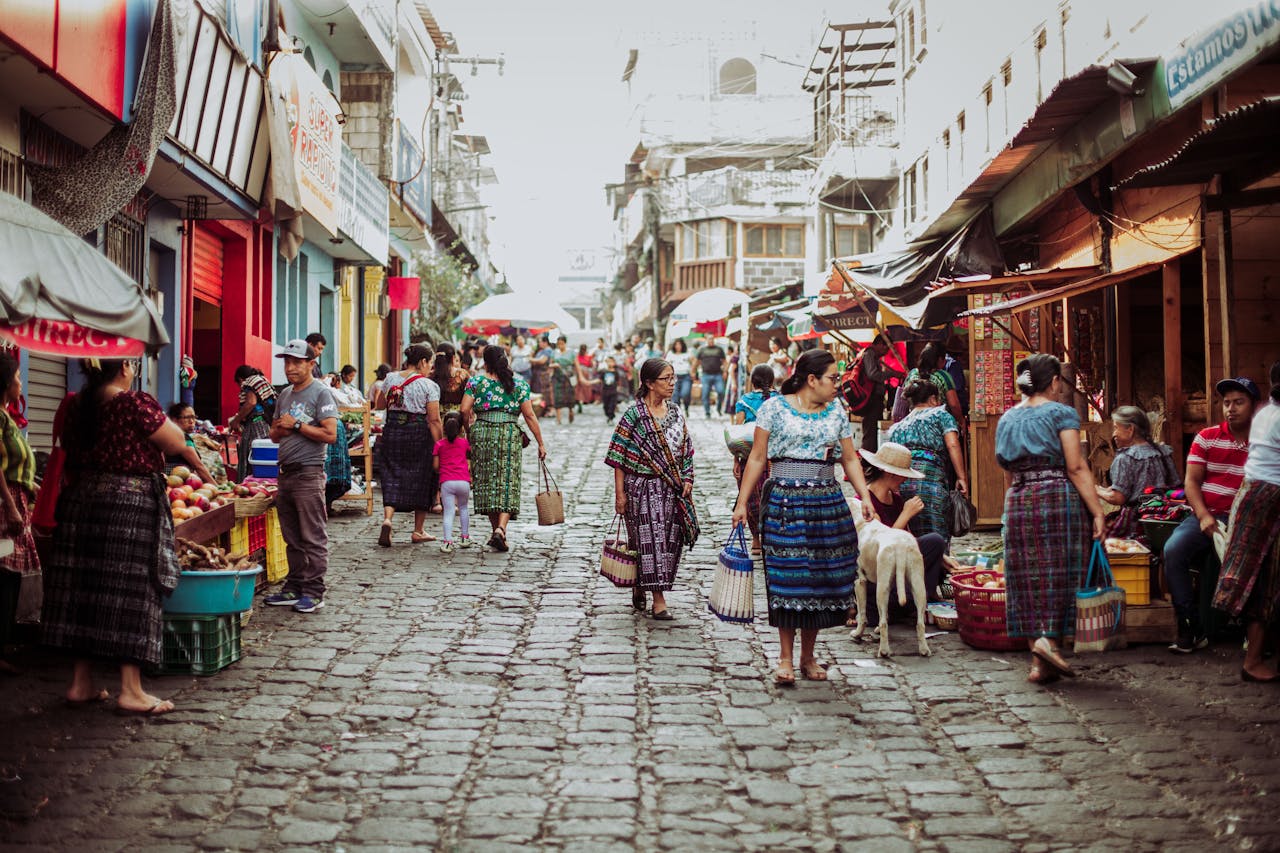The Informal Economy in Urban Areas: Street Vendors and Survival
Millions of people rely on the informal economy system which serves as an essential element in urban areas for their survival.
Street vendors make up the essential workforce in this sector because they manage various economic challenges and legal restrictions in order to survive.
The blog examines street vendors’ encounters with hardships while presenting their economic value along with examining rules that affect their community.
The Role of Street Vendors in Urban Economies
Contribution to Local Economies
Urban consumers rely on street vendors to access their affordable products and services since these vendors operate within convenient markets.
They boost both product and service consumption leading to strong local economic activity which generates an accessible market environment.
Employment and Livelihoods
The street vending practice serves as the only economic option for people who cannot access traditional employment.
Numerous people from marginalized populations such as migrants and women choose street vending to gain economic independence.
The informal economy provides jobs for people whose searches for formal employment fail, thereby making cities experience lower unemployment numbers.
Challenges Faced by Street Vendors
Legal and Regulatory Issues
Because street vendors work without proper licenses they remain easily vulnerable to local authorities’ fines and harassment in addition to eviction threats.
Due to their unrecognized standing vendors cannot access aid funding or business defense mechanisms or city improvement benefits.
Health and Safety Concerns
Street vending exposes workers to dangerous weather along with dangerous traffic conditions and environmental pollution.
The shortage of appropriate sanitation and storage facilities creates health and public safety issues because they compromise hygiene standards.
Without social security vendors have no protection during emergency situations.

Strategies for Survival and Policy Recommendations
Adaptation and Innovation
Street vendors evolve their business method through mobile vending approaches together with diverse product ranges.
Although they face legal barriers and economic struggles some vendors build their presence through social media to gain new customers and maintain their competitiveness in the market.
Policy Support and Urban Planning
The establishment of supportive governmental policies stands necessary to develop an inclusive urban economy. This includes:
- Cities must choose particular locations for vending services that will protect vendors from unnecessary evictions from their spots.
- The simplification of licensing procedures will permit increased numbers of vendors to obtain legit permits.
- Small-scale loans combined with educational training services enable vendors to build bigger businesses which leads to increased revenue potential.
- Sanitation facilities and workplace safety measures provided by the city will improve their working conditions.
Cities will establish cooperative relationships between street vendors and formal businesses when they officially recognize the potential of street vending to operate legitimately.
The Social Impact of Street Vendors
Community Engagement and Urban Culture
The presence of mobile vendors strengthens the community bonds within urban areas.
Public areas become alive with activity when markets and street stalls operate because different backgrounds of people interact with each other.
These open-air markets operate as cultural meeting points which present traditional local foods alongside local crafts and merchandise that represent the urban community.
The activity of street vending helps build friendships between members of the community.
Street vendors work on developing enduring relationships with their clients which produces confidence and understanding between them.
Through community involvement local neighborhoods become stronger and urban spaces become more inclusive together with more activity taking place in public areas.
Gender and Inclusivity in Street Vending
Female street vendors represent a substantial portion of the vendor population with most of them serving as sole providers for their families.
The income generation through street vending functions as an earning opportunity that serves household purposes for vendors.
Women vendors encounter gender-based harassment alongside discrimination which makes their street vendor work even more difficult.
The inclusion of gender-sensitive approaches should be mandatory for all urban development planning activities by public officials.
The success of women vendors in street vending depends on establishing safe work areas and financial education and successful prevention programs against exploitation.
The Future of Street Vending in Urban Areas
Digital Transformation and E-commerce
City development into digital platforms has led street vendors to adopt technology as a way of improving their commercial operations.
The combination of mobile payment systems and online delivery platforms and digital advertising lets vendors increase their customer base.
The implementation of smart vending zones by cities provides vendors with mobile applications through which they can book spaces while monitoring their earnings from vending operations.
The effort to upgrade street vendor practices demands technical support from governments together with tech businesses which should deliver both training and affordable technological tools to vendors.
The solution will create connections between street vending traditions and traditional economic sectors.
Sustainable and Eco-Friendly Vending Practices
Street vendors adjust their operations through sustainable practices because urban communities demonstrate increasing concerns about sustainability.
Street vendors implement environmentally friendly measures by using biodegradable materials and promoting both waste reduction and local item procurement which helps their business operations generate less carbon emissions.
Cities should implement benefits for environmentally conscious vendors who use sustainable methods which might include reduced taxation and entrance to green business initiatives.
The promotion of sustainable street vending creates advantages for vendors together with environmental sustainability resulting in extended urban resilience of informal economic activities.
Conclusion
The informal economy in urban areas depends heavily on street vendors who drive both economic expansion and create jobs and enhance accessibility.
Various supportive policies alongside innovative strategies can help improve street vendor conditions along with ensuring their sustainability despite multiple existing challenges.
Economic growth with inclusion requires the recognition of street vendors’ urban development role.
FAQs
Why are street vendors important for urban economies?
Urban economies heavily depend on street vendors because they offer low-priced goods and services which specifically benefits individuals with low earnings.
Street vendors drive local business growth while buying products from wholesalers and enable unemployed individuals to start businesses independently.
Such vendors create an enriched urban cultural environment that strengthens social ties and produces vibrant cities which welcome all populations.
What challenges specifically trouble street vendors and which governmental steps can address their difficulties?
Dangerous conditions at street vendor workplaces frequently occur alongside both official restrictions and police mistreatment.
These vendors function illegally which leaves them exposed to legal consequences including removal from their location while facing penalization.
Governments should ease licensing procedures and create specific vending locations while giving informal traders access to microfinance programs and implement urban guidelines which unify these workers into the formal economy.
Also read: Nighttime Economy: How Cities Are Monetizing 24/7 Urbanization

